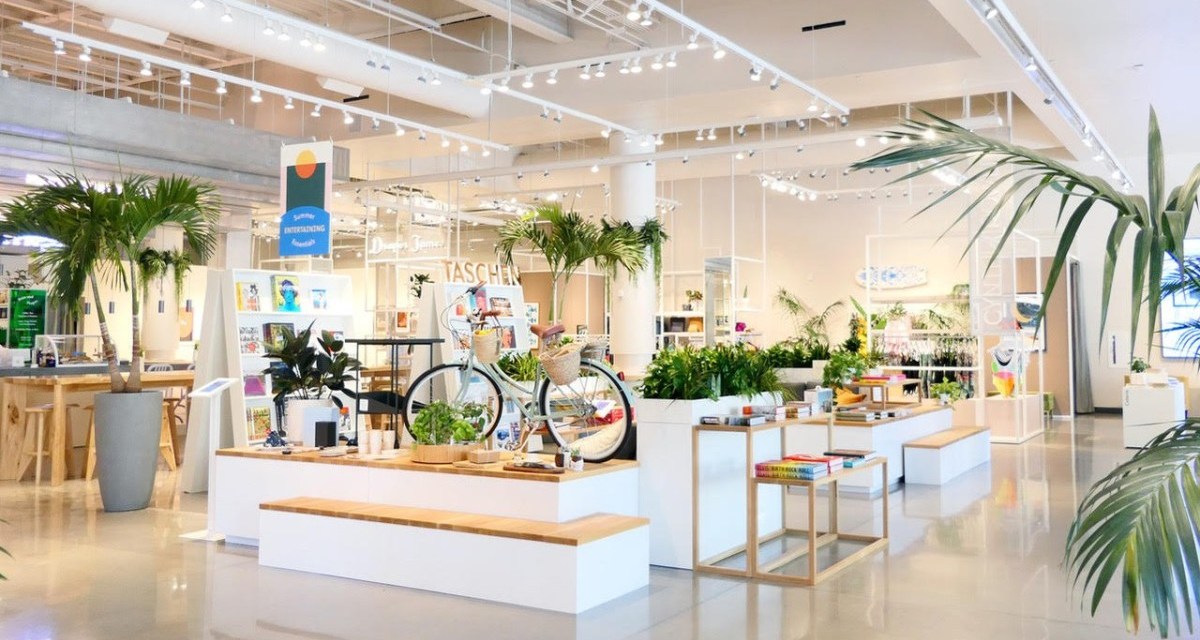As Neighborhood Goods shuts down, brands await final payments

After about six years of operation, Neighborhood Goods is closing its doors.
Neighborhood Goods was founded in 2017 as a startup looking to create a cooler, more modern department store. The company opened its first location in Plano, Texas in 2018, followed by New York City in 2019, Austin’s South Congress in 2020, and Newport Beach in 2022.
But now, Neighborhood Goods is closing all of its locations, the company announced in an email sent to vendors and brand partners on Friday. Beauty Independent first reported the news. Brands, however, tell Modern Retail they’ve sometimes had difficulty getting in touch with the company; some say they are owed thousands of dollars dating back months.
In an email to Modern Retail confirming the closing, Neighborhood Goods CEO Matt Alexander said, “Last week, we made the difficult decision to shut Neighborhood Goods down.”
Alexander said the company has faced myriad challenges over the past year, but retained optimism about keeping afloat. “We’ve been exploring options to do so, whether running lean and nimble or with support from landlords and/or investors,” he said, with positive indications from these partners.
But, over the past couple of weeks, one of the retailer’s landlords had a change of heart and informed Neighborhoods Goods about closing one of its locations promptly. “We looked at our options and quickly concluded the path forward — potentially just with one store remaining open — would be very difficult to pursue,” Alexander said. “So we made the decision to close.”
Signs of trouble for the multi-brand retailer began last year. In April 2023, inquisitive Austin-area Redditors noticed a lease termination sign on the retailer’s flagship South Congress store. According to the notice, the retailer’s monthly rent amounted to a whopping $98,758.66. In the following months, the company attempted to cut costs as it scaled back operations. And earlier this month, The Dallas Morning News reported that both of Neighborhood Goods’ Texas locations closed.
Ad position: web_incontent_pos1
Neighborhood Goods was one a few startups that launched around 2018 — coinciding with the boom in DTC startups — that hoped to reinvent the department store. The idea was that the department store model was tired, and many of those retailers no longer carried the brands that were most relevant to the consumer. At the same time, brands were frustrated by how little control they had over how their products appeared in wholesale. Neighborhood Goods would work more closely with brands to develop unique in-store displays — an early brand partner, Hims & Hers, for example, set up a display that looked like a pharmacy.
But now, all of those startups have closed as more DTC brands look to open stores of their own. Showfields, a competitor, began closing stores and then went bankrupt last year.
As Beauty Independence first reported, the retailer alerted active vendors of all store closures on January 19, saying it’s in touch with vendors to finalize “outstanding finances,” including waiving invoices to brands for the month of January. But according to brand partners, communication by the retailer has been minimal to non-existent in the months leading up to the shutdown.
Now, brand partners await word on the end of their contracts with the retailer. One company resorted to requesting payment publicly on Neighborhood Goods’ Instagram page; On January 10, activewear brand Héros commented on a months-old Neighborhood Goods post: “Could someone please respond to our emails. We have outstanding invoices that are six months past due and we need payment.”
Another brand is currently awaiting outstanding invoices from the retailer.
Ad position: web_incontent_pos2
“We haven’t been paid since last summer, so we stopped sending them products,” the brand’s founder said. The way contracts typically work with Neighborhood Goods is that a brand sends a shipment of items to the retailer, and receives a payment for whatever amount sold during that period.
The aforementioned brand is currently owed “a few thousand dollars” for sales accrued at Neighborhood Goods since last year, which the founder said is “not nothing” for a bootstrapped startup. “We’ll continue to write them,” the founder said. “But at the same time trying to find water in a dry puddle may be a waste of time when you’re a growing business.”
Alexander confirmed that the retailer is working on settling outstanding payments to vendors. “We informed our team last week and, in parallel, informed our brands and partners,” he confirmed, adding that the retailer let brands know stores will be closing over the next week or two. “From there, we’d be returning all inventory and, on the finance front, sending out final reporting and statements,” he said.
Another executive at a CPG brand that sells at Neighborhood Goods told Modern Retail her team hadn’t heard about the full closing until reading about it on Monday. It’s worth nothing that the email Neighborhood Goods had sent to brand partners on Friday came from a new email address the Neighborhood Goods team had set up for the express purpose of communicating with brands about the shutdown.
Last fall the brand reached out to its day-to-day contacts at Neighborhood Goods about carrying new products, but the emails bounced — the first sign that something might be up. This came as a surprise as up until then this brand had great experiences with the retailer, especially when it came to gaining exposure to new customers.
After several more attempts to contact the store directly, last week the brand was alerted that the Neighborhood Goods team was downsizing. Then, finally, the startup got word of the impending closure.
“I figured all along they were scaling back, given the economic environment and how tough it must be on high burn businesses like retail,” the executive said. “So I guess this confirms my suspicions.”

